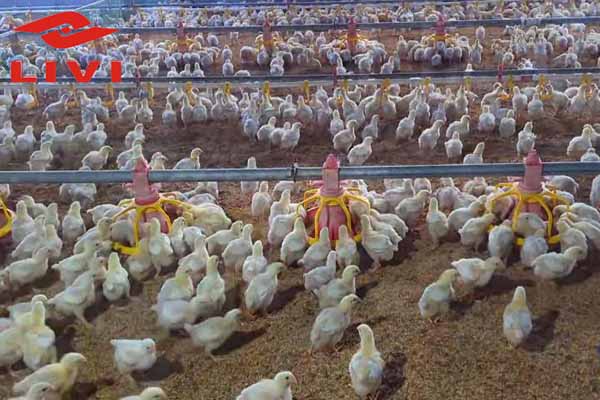Poultry Farming in Kenya: Kienyeji Chicken – The Rising Star
Time : 2025-05-12
Poultry farming has always been a vital part of agriculture in Kenya, and the Kienyeji chicken, a local breed, has gained significant popularity in recent years. In this article, we’ll dive into the world of poultry farming in Kenya, focusing on the Kienyeji chicken and its impact on the industry.
Introduction to Poultry Farming in Kenya
Kenya’s agricultural sector is diverse, and poultry farming plays a crucial role in the economy. With a growing population and increasing demand for protein, the industry has seen substantial growth. Poultry farming in Kenya includes various breeds, but the Kienyeji chicken stands out due to its adaptability and productivity.
What is Kienyeji Chicken?
Kienyeji is a Swahili term that translates to “local” or “indigenous.” The Kienyeji chicken is a breed native to Kenya, known for its hardiness and ability to thrive in various environments. Unlike commercial breeds, Kienyeji chickens are not bred for specific traits like egg-laying or meat production. Instead, they are valued for their overall health and resilience.
The Advantages of Kienyeji Chicken
1. Adaptability: Kienyeji chickens can withstand harsh weather conditions and are less prone to diseases, making them ideal for small-scale farmers.
2. Egg Production: While not as productive as commercial breeds, Kienyeji chickens lay eggs regularly, providing a steady supply of eggs for both consumption and sale.
3. Meat Quality: The meat from Kienyeji chickens is highly valued for its flavor and tenderness.
4. Cost-Effectiveness: Raising Kienyeji chickens is relatively inexpensive, as they require minimal feed and care.
How to Start a Kienyeji Chicken Farm
If you’re interested in starting a Kienyeji chicken farm, here are some key steps to consider:
1. Research: Learn about the breed, its care requirements, and the market demand for Kienyeji chicken products.
2. Source Chickens: Obtain Kienyeji chickens from a reputable breeder or hatchery. Ensure that the chickens are healthy and of good quality.
3. Prepare the Coop: Build or rent a suitable coop that provides adequate space, ventilation, and protection from predators.
4. Feeding: Kienyeji chickens can be fed a variety of foods, including grains, vegetables, and insects. Provide a balanced diet to ensure healthy growth and egg production.
5. Healthcare: Regularly check the chickens for signs of illness and consult a veterinarian if necessary.
6. Marketing: Identify your target market and develop a marketing strategy to promote your products.
Challenges in Poultry Farming in Kenya
Despite the benefits of Kienyeji chicken farming, there are several challenges that farmers face:
1. Limited Access to Resources: Small-scale farmers often struggle to access quality feed, vaccines, and other essential resources.
2. Market Access: Finding reliable markets for Kienyeji chicken products can be difficult, especially for new farmers.
3. Climate Change: The changing climate can impact the health and productivity of Kienyeji chickens, requiring farmers to adapt their farming practices.
Success Stories
Several farmers in Kenya have successfully ventured into Kienyeji chicken farming. Here are a few success stories:
1. John Gichuki: John started his Kienyeji chicken farm with just 50 chickens. Today, his farm has over 1,000 chickens, and he supplies eggs and meat to local markets.
2. Winnie Mwangi: Winnie’s Kienyeji chicken farm not only provides income for her family but also serves as a training center for other farmers interested in poultry farming.
3. Sammy Mwangi: Sammy’s farm focuses on organic Kienyeji chicken production, and he has gained a loyal customer base for his high-quality products.
The Future of Poultry Farming in Kenya
The future of poultry farming in Kenya looks promising, especially with the growing demand for local and organic products. Here are some key trends to watch:
1. Sustainable Farming Practices: More farmers are adopting sustainable farming practices to ensure the long-term viability of their farms.
2. Value Addition: Processing and packaging Kienyeji chicken products can increase their value and marketability.
3. Technology: The use of technology, such as mobile apps for market access and online platforms for sales, is becoming more common in the industry.
Conclusion
Kienyeji chicken farming in Kenya is a testament to the power of local breeds and sustainable agriculture. With the right approach and support, Kienyeji chickens can play a significant role in feeding the nation and improving the livelihoods of small-scale farmers.












